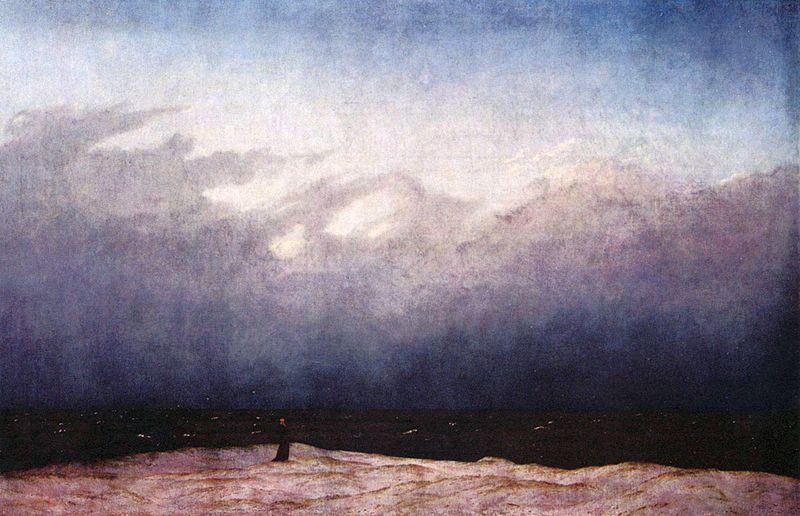I like these two paintings (amongst others by the same painter) as 'roadsigns' and want to share them with you.
They are called "The Monk by the Sea" and "The Abbey in the Oakwood" and were painted as counterparts.
Some general descriptions can be found at Wikipedia:
http://en.wikipedia.org/wiki/The_Monk_by_the_Sea
http://en.wikipedia.org/wiki/The_Abbey_in_the_Oakwood
but at least for me, the pictures "work" without many comments.


There have been quite differing interpretations and some controversy from the very beginning (which, to me, is a proof that C.D.F. "hit the spot").
It took him quite long to paint these and especially the monk by the sea went through a process of reduction (by overpainting).
C.D.F. was very religious and at the same time acribic about the details of nature - and the process of painting was a spiritual one for him.
So - as C.D.F. said himself - you can take such a picture just as a picture or as a description of an inner truth.
I think the paintings are about himself as a seeker and his anticipated death and burial.
The pictures look dismal at first sight only.
One must observe the signs of nature:
There is blue sky over troubled waters.
And for the second picture the new moon indicates that the sun will rise in a few minutes and the haze will go away!
Greetings,
Georg